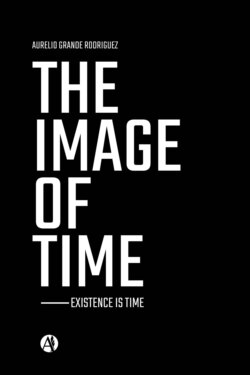Читать книгу The Image Of Time - Aurelio Grande Rodríguez - Страница 10
На сайте Литреса книга снята с продажи.
ОглавлениеTHE FUNDAMENTAL CATEGORIES
By a classic convention of modernity, the general study of existential reason, experiences a methodological doubling, arbitrarily acquiring a new systematization. The old, initially totalizing cosmological model is displaced by science and its particular methods, as the structure of the world seems to change over time; or, perhaps it changes when its way of interpreting it is modified - which isn´t the same, it´s very different. This new image of the world, based on a series of foundations that try to explain nature, describes its properties as a function of the whole and the parts; aspects that at least are problematic. This is how the particular emerges from the general with claims of universality, making a systematic step that goes from the idea to the ideology; of a paradigm that´s recognized by installing its hegemony. Once this process (structurally contradictory) has started, by similarity and consequence, it follows the guidelines of its own determination; that depending on its principle condition, then it produces more of the same. It´s for this reason that, within the scientific system, there´s a consequent unfolding, from which two large, conceptually different, associated and contradictory categories emerge: the natural sciences and the social disciplines. Referring on the one hand to the theoretical and practical development of material things, while on the other a systematic study of spiritual and cultural issues is carried out; a classification procedure that once installed wouldn´t stop either - in fact, it´s the architectural foundation of the paradigm.
This model based on difference is a process that grows indefinitely, multiplying not only the complexity of its object but also the contradictions between all of them; but very especially, those that refer to the observer and his object.
In the pre-Aristotelian period, everything was more of the same, despite the different schools and their tendencies, a fundamental difference wasn´t conceived with respect to the object of the experience; not even between it and the subject. It´s Aristotle who, for a series of practical reasons, introduces a system based on categories based on their classifications, on a methodology that, above any speculation, was basically nothing more than a mere specialization, from which, on the same ideologically arises the idea of the different.
It isn´t very difficult to notice in this multiple condition extracted from an irreducible totality, a relationship where analysis by means of, from the same, the different is progressively generated through a deconstructive process; which is also regarding the development of experience, a reconstructive procedure. This is apparently the consequence of a hypothetical difference that mediates between the figure of the subject and the object, with a third condition, where the set of all subjects is in turn, the material and social object of each individual experience. But in any case, once this procedure is started, it continues with its own mechanism, maintaining the methodology of its own determination, establishing a series of third parties that, left to their own devices, become inexhaustible. Issues of all kinds such as material, bodily, neuronal, linguistic and psychic, as well as conscious and unconscious functions between which there´re no defined limits, make understanding a process that would also end up being an object of itself; which would result, that all this variety would no longer be necessary -as if the only true thing about such a context was only in the procedure- of thinking and not of being -in the facts as a way of existing.
To speak of natural sciences on the one hand and of social sciences on the other, and consider them different within the same discourse is more than nonsense, it exhibits an express irrationality and constitutes an enunciative absurdity; whatever the alleged differences, who speaks of both categories is the subject from his own experience. The reason is as obvious as it´s simple: there´re no natural men on the one hand and social on the other, there´re only men who refer interchangeably to all the phenomena of their experience. Even, when it refers to questions as different as matter and consciousness, both categories are necessarily thought questions. The subject is aware of the structure of the world through his experience, like all things that, by virtue of being observed, are necessarily thought entities; and that hypothetical difference is also thought.
This great complexity of things, events and functions finds its representation in the consciousness of a subject who, from identity and difference, then supposes, from his social membership, the existence of other consciences. It´s there when the problem of other minds is present, refuting and, at the same time, confirming on practice, the contradictory phenomenology of experience.
